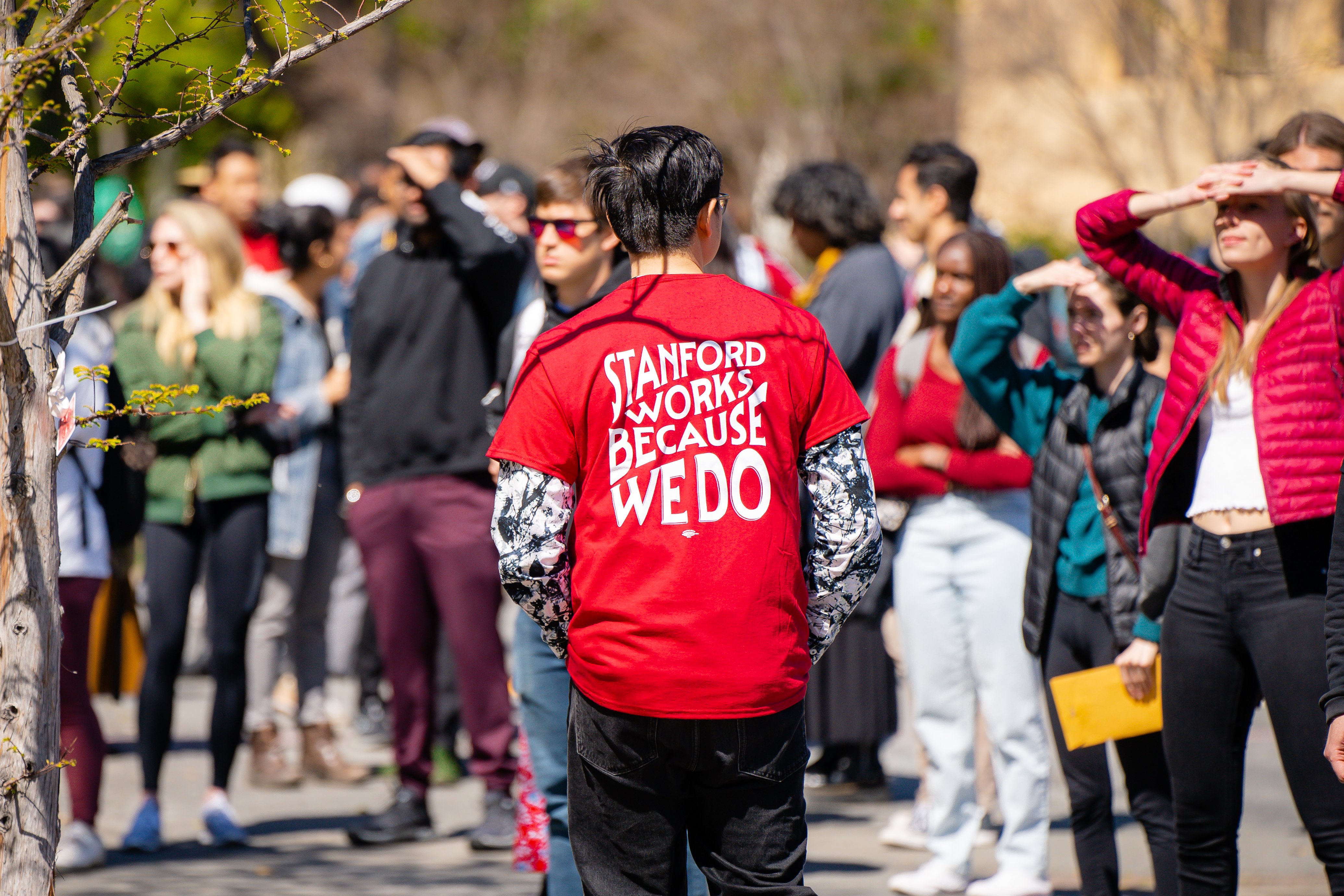Following months of surveys, research and internal debate, the Stanford Graduate Workers Union (SGWU) has released its proposed economic platform, centering around “an immediate and substantial pay raise for all graduate workers.”
From April 25 to May 15, all cardholding Union members will be able to vote on whether to accept or reject the platform. Assuming a simple majority of votes affirm the platform, it will serve as the foundation for negotiations between SGWU and the University.
Beyond a pay raise, the platform also seeks to expand access to affordable housing, healthcare and transportation for graduate student workers. At its core, the economic platform seeks to support graduate students in reaching their “maximum potential,” according to Sayush Raj, a third-year Ph.D. candidate in stem cell biology and member of the SGWU Bargaining Committee.
“I really believe that in order for anyone to achieve excellence, they need to be supported by their community, and all of their needs should be fulfilled. They shouldn’t just be trying to survive,” Raj said. “I think that currently [Stanford] just isn’t set up for that.”
For Raj, a key first step in creating this environment is elevating graduate students out of rent-burdened status, which denotes someone paying 30% or more of their salary on rent, as defined by the U.S. Department of Housing and Development. As of 2021, 90% of graduate students fell into this category. Today, the “vast majority” of graduate students remain rent-burdened, said fourth-year physics Ph.D. candidate and SGWU Bargaining Committee member Rory O’Dwyer.
The proposed pay raise seeks to address this matter, according to Chris Gustin, fifth-year Ph.D. candidate in applied physics and SGWU Bargaining Committee member.
Gustin explained that the initial draft of compensation proposals is designed to make sure that the large majority of graduate workers would no longer be rent-burdened and would be paid a fair wage that takes into account the Bay Area’s cost of living.
While an exact number has yet to be finalized by the SGWU, O’Dwyer is encouraged by recent bargaining agreements at Northwestern University, University of Chicago and Johns Hopkins University. Graduate workers at these schools received a 22%, 22% and 40% pay raise respectively. O’Dwyer said that the SGWU will be asking for a similar raise.
“These are unions that were bargaining for their contract around the same time we are,” O’Dwyer said. “It’s actually quite a good time to be doing what we’re doing right now. A lot of other institutions are getting these sorts of above 20 percent raises in their first year.”
Bargaining committee members also hope to make strides in securing more affordable transportation access for graduate workers. Among their proposals is the return of Caltrain GoPass access for graduate workers. According to Sophie Walton, fourth-year biophysics Ph.D. candidate and SGWU Bargaining Committee member, the committee has seen significant support for bringing back the GoPass.
Fletcher Chapin, third-year Ph.D. candidate in civil and environmental engineering and SGWU Bargaining Committee member, said that the GoPass’s discontinuation in 2022 inspired his work as a union member. To Chapin, this decision “shows how little Stanford cares about their graduate workers — that they just took away a benefit that many people relied on to get to work daily.”
University spokesperson Dee Mostofi wrote that “Stanford values the many contributions our graduate students make to support the university’s teaching and research mission.”
The SGWU’s economic platform is the organization’s second major set of proposals, following the Union’s “Language Articles.” After months of back-and-forth negotiations between the SGWU and the University, the two parties have only reached a tentative agreement on five of nearly two dozen articles, while the others are still being negotiated on.
The process for the economic platform is likely to follow a similar timeline, according to O’Dwyer. He said he expects the economic platform to receive a similar level of approval from SGWU voters as the Language Articles, which he said received over 90% of votes in favor of adoption.
Following the approval of the platform by the SGWU body, negotiations with the University are set to follow shortly after, which Mostofi wrote the University remains open and ready for.
“The University looks forward to receiving the union’s proposals at the bargaining table and engaging in productive discussions with the union on those matters,” Mostofi wrote.
While a seemingly long and arduous process for some, according to third-year aeronautics and astronautics Ph.D. candidate Emi Soroka, the eventual results justify the efforts. Referencing a message she’s heard from SGWU leadership, she said, “Every line in our platform will make a difference in someone’s life.”
